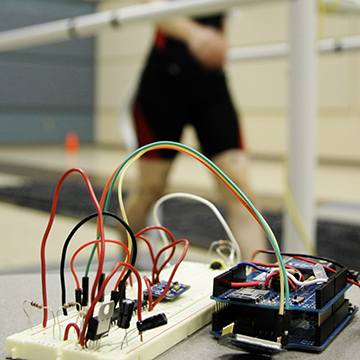by Lisa Spellman, UNMC
OMAHA, Neb. (Nov. 6, 2013)—Researchers at the University of Nebraska Medical Center have discovered that patients with diffuse large B-cell lymphoma don’t respond well to the standard drug therapy used to treat this type of cancer if they have high levels of a gene called STAT3.
The findings are published in the November issue of the Journal of Clinical Oncology, the medical journal of the American Society for Clinical Oncology.
“These results are significant in that it gives oncologists a better understanding of the best way to personalize medical treatment for these patients and offer them hope for more positive outcomes,” said Kai Fu, M.D., PhD, associate professor at the Department of Pathology and Microbiology at the University of Nebraska Medical Center
STAT3, or signal transducer and activator of the transcription 3 gene, is part of a family known as the STAT genes that provide instructions for making proteins that are part of essential signaling pathways related to cell proliferation and survival within cells.
When these genes are activated they move into the nucleus of the cell and bind to specific areas of DNA in regulatory regions near genes. The STAT proteins then regulate whether these genes are turned on or off.
Patients with this type of lymphoma are treated with a combination of immunotherapy using rituximab with a chemotherapy regimen that includes cyclophosphamide, doxorubicin, vincristine and prednisone, commonly referred to as R-CHOP.
“Using this combination of drug therapy usually has very good results but not in those patients with this specific type of lymphoma,” Dr. Fu said. “We wanted to find out why so we could figure out a way to change those outcomes.”
Dr. Fu and his team, along with UNMC investigators Julie Vose, M.D., James Armitage, M.D., John Chan, M.D., Dennis Weisenburger, M.D., and Timothy Greiner, M.D., initiated the study in 2005 with collaborators from 11 institutions around the world.
The work was supported in part by a Strategic Partnering to Evaluate Cancer Signatures grant from the National Institutes of Health, a career development award from the Lymphoma Research Foundation and a translational research grant from the Leukemia & Lymphoma Society.
They began looking at the STAT3 gene and found that patients with high levels of the gene responded poorly to the standard chemotherapy compared to those with lower levels.
Non-Hodgkin lymphoma is the fifth most common type of cancer in the United States and diffuse large B-cell lymphoma is the most common type of non-Hodgkin lymphoma, accounting for 31 percent of all cases, Dr. Fu said.
The next step in the research is to use a specific STAT3 inhibitor to see if it helps the R-CHOP chemotherapy regimen work more efficiently and improve patient survival rates by identifying those patients who are at higher risk, he said.
“We are very fortunate to be given the opportunity to be involved with many early phase clinical trials for the treatment of lymphoma including a new STAT3 inhibitor, which is based on this research,” Dr. Vose said.
Through world-class research and patient care, UNMC generates breakthroughs that make life better for people throughout Nebraska and beyond. Its education programs train more health professionals than any other institution in the state. Learn more at unmc.edu and follow us on social media.











